Early Release Weekly Newsletter


Behold our Heritage, Share our Future
Congratulations, Lady Dragons!
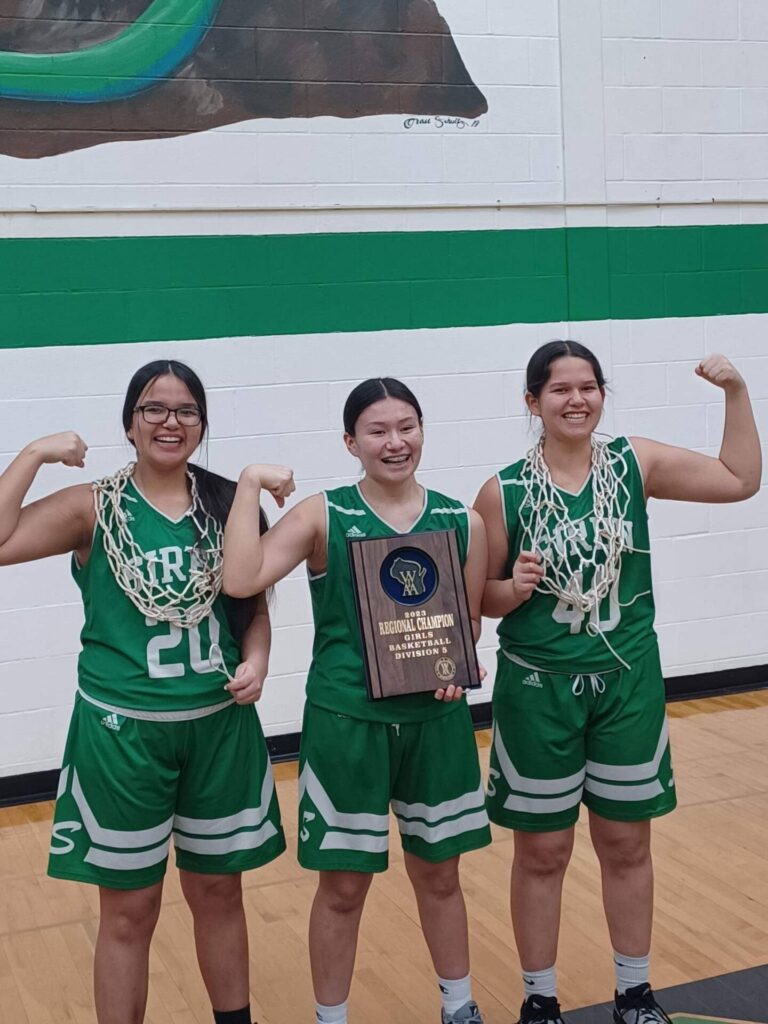
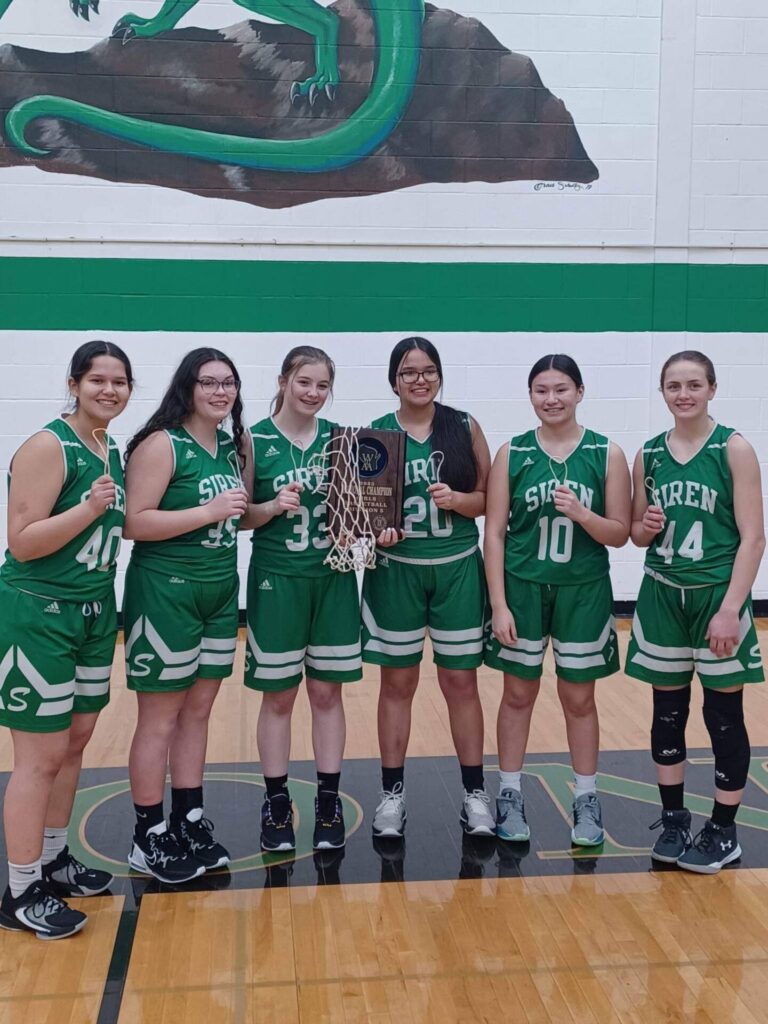
Siren 70, South Shore 48 (Sectional semi-final)
The first few minutes of the Sectional semi-final on Thursday, March 2nd, in Shell Lake looked ugly for the Siren girls’ basketball squad. They were behind by as much as a dozen points only a few minutes into the game, and it seemed like it would be a long, punishing bus ride home for the Dragon girls. Head coach Ryan Karsten called a timeout for an on-court confab with his five starters, leaving everyone else on the bench.
“I’ll admit it, I was a little nervous, also,” Karsten said after the contest. “Some of these girls have been playing for me for ten years, and I told them ‘We’re not going home tonight. But if you keep this up, you will.’”
Whatever magic spell he placed on his starters worked, as they not only overcame the deficit in a few minutes, they responded with a deadly defensive press that forced the top-seeded South Shore Cardinals into a disjointed, polar opposite of their earlier selves.
The Dragons got within a point at 18-19, on a critical outside three-pointer, brought on by the press and a few Cardinal turnovers that quickly turned into points. It was a sort of defensive clinic, and the Dragons used their entire five on the court to not only confuse and cut-off the South Shore offense, but they also capitalized on every mistake. Few comebacks were as dramatic and overwhelming than the Dragon girls’ basketball squad response, which went on to become all-Dragons, all-night.
The defensive turn stifled the South Shore girls, who had a hard time responding and ended up falling way behind in the second half, and only scored 22 points in the second frame, compared to 38 points by the Dragon girls. The Dragon win sent the girls to Barron on Saturday, March 4th, where they faced off against McDonell Central, a private school from Chippewa Falls.
McDonell Central 70, Siren 48 (Sectional final)
Unfortunately for the Siren girls, their Saturday, March 4th game to determine if they went to the WIAA State Tournament went the other way against McDonell Central with an identical score, 70-48. The loss ended their 2022-23 season with a 23-6 overall record and a West Lakeland Conference mark of 13-5.
— Greg Marsten, Editor of the Burnett County Sentinel
We are so proud of the Siren Girls and all of their hard work & dedication this basketball season!
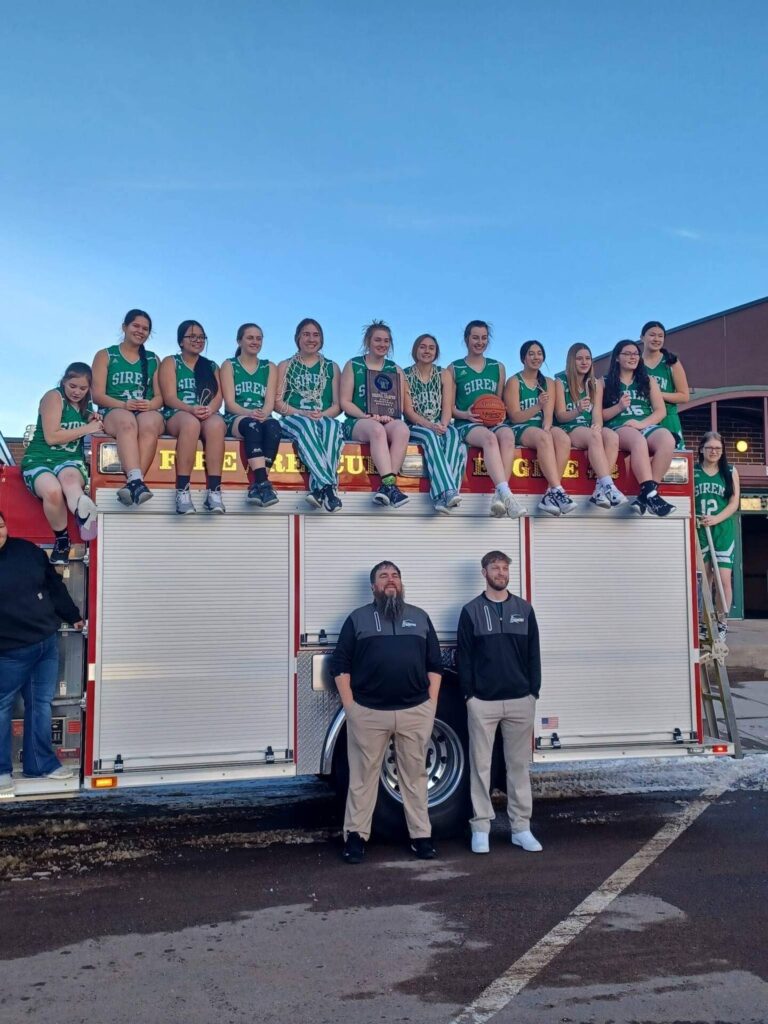
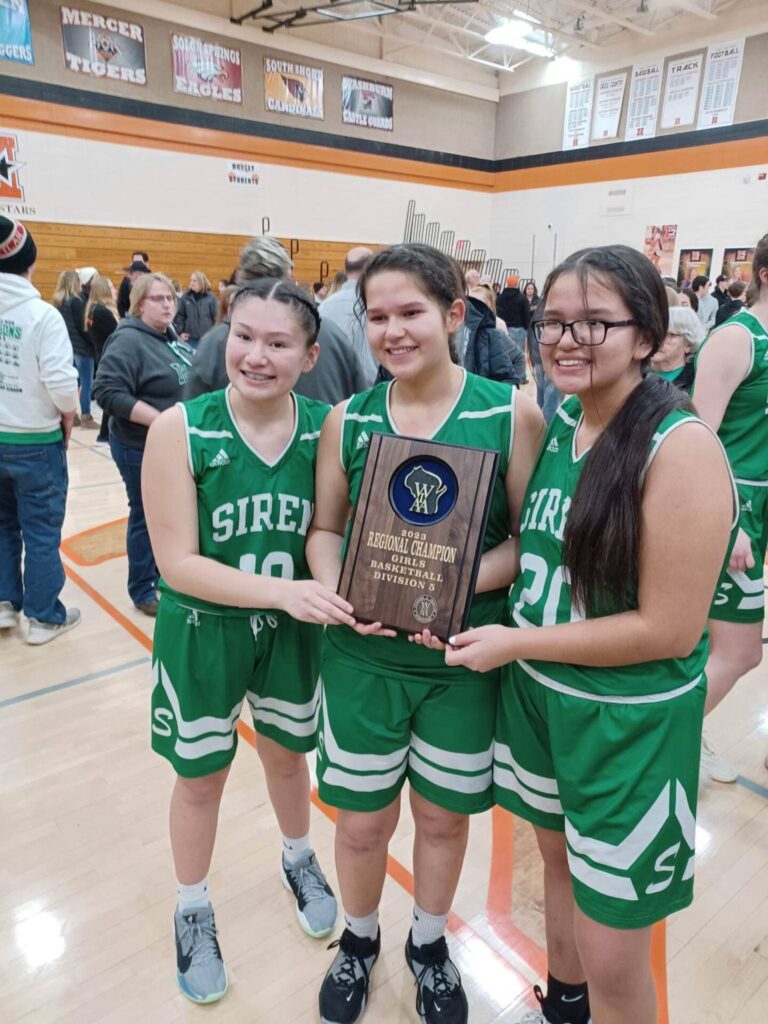


The Round Lake Clinic will be closed on March 15th, 2023.

Tribal Government Job Openings
JOM Home School Coordinator *Spooner*
JOM Home School Coordinator *Webster*
Construction Laborer/Parts Runner
Full job descriptions are available by clicking on the job titles. Please contact Tiffany Iorns, [email protected] or ext. 5196, for additional information.

HHS Job Openings
Domestic Violence/Sexual Assault Clerk
Behavioral Health Coordindator/Transporter
Full job descriptions are available by clicking on the job titles. Please contact Shaurette Reynolds, [email protected] or ext. 5133, for additional information.
Please spread the word to your friends and family members about our open positions!
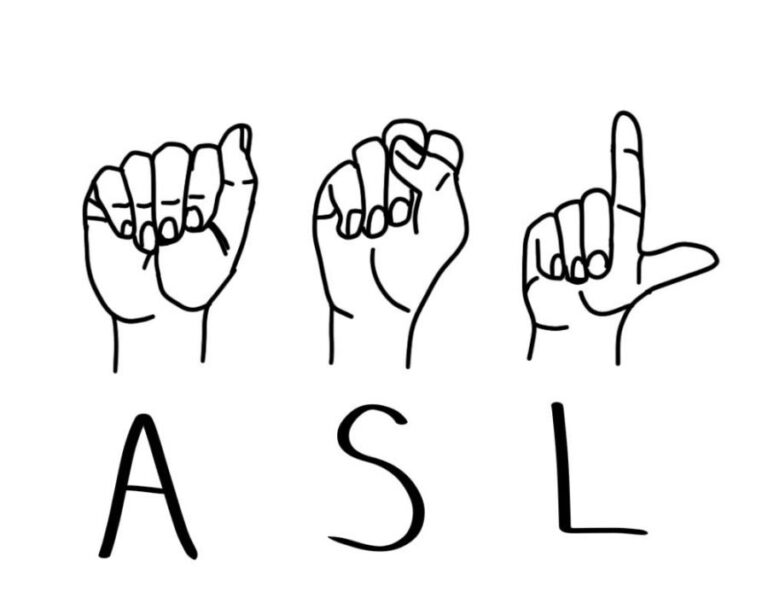
Oklahoma School for the Deaf Offers FREE Lessons in American Sign Language (ASL)
The school is offering American Sign Language I and American Sign Language II as noncredit level courses. It is the intention of these courses to teach users basic, conversational American Sign Language.
If you are interested in learning more, click here.
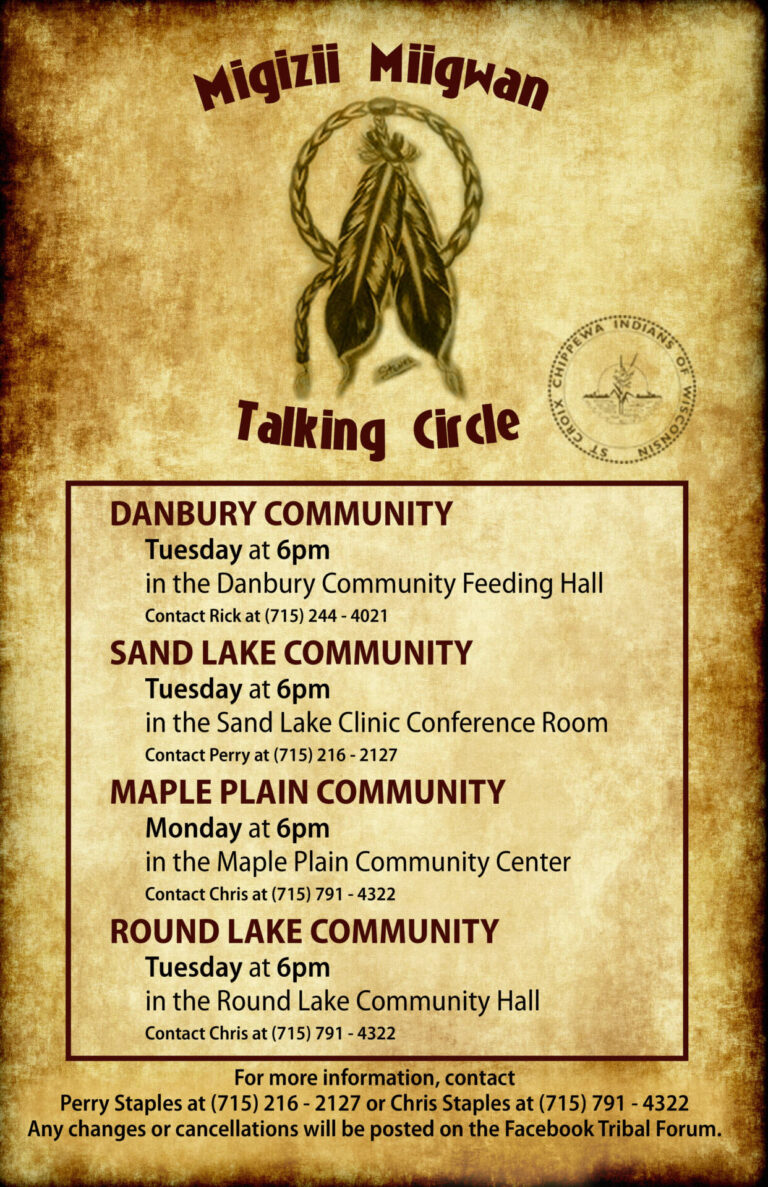
St. Croix Tribal Health Clinic – Diabetes Foot Care
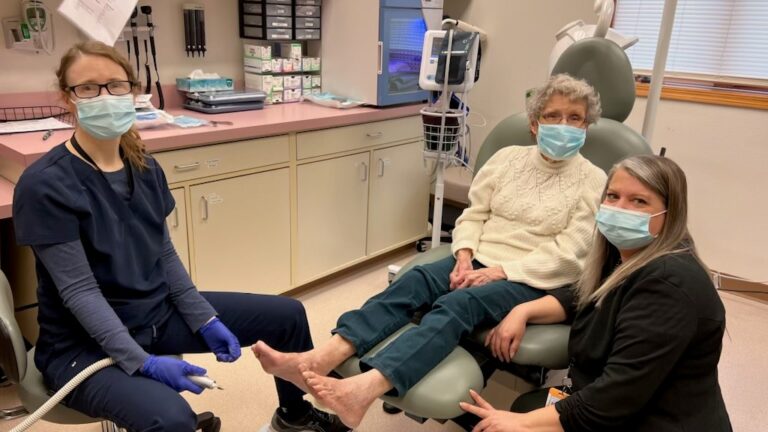


STAFF ARE WELCOME TO SIGN UP!

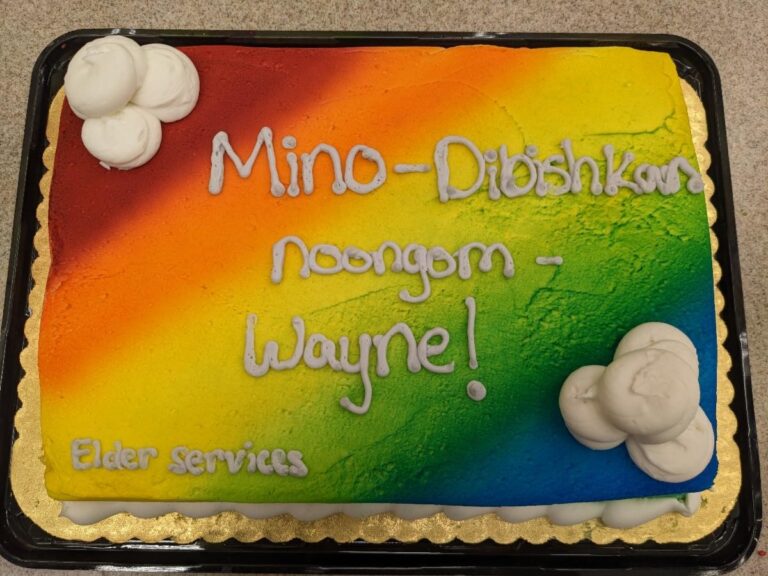
Happy Birthday, Wayne Staples!
Wayne Staples celebrated his 91st birthday on March 4th, 2023. Wayne is the oldest male elder in the St. Croix Tribe. Happiest of birthdays, Wayne!
Weekly Updates for The Event Center in Old Fourwinds:

How the Anishinaabe Overcame Difficulties Long Ago
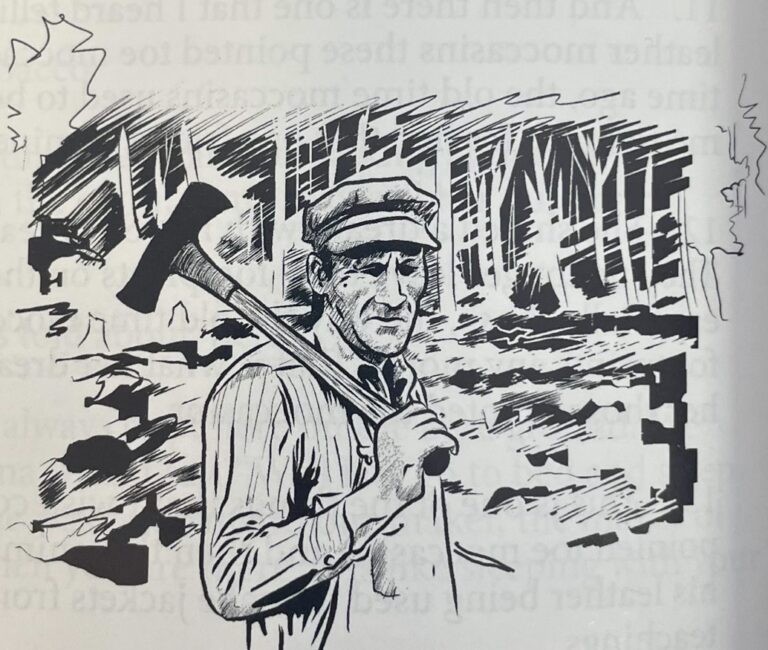
Amik [Larry Smallwood]
Ingii-kagwejimigoo omaa da-bi-izhaayaan omaa da-bi-gaagiigidoyaan da-dibaajimoyaan gegoo. Gaawiin-sh ngikendanziin awegonen ge-dibaajimotawaambaan omaa. Mii eta go ingiw Anishinaabeg mewinzha eko-gikenimagwaa gaa-pi-izhichigewaad ongow go gaa-nitaawigi’ijig.
Nashke gaawiin, gaawiin gii-ayaamagasinoon mewinzha anokiiwin noongom ezhi-anokiid aw Anishinaabe aw bemaadizid. Ingiw gaa-nitaawigi’ijig apane gii-ojaanimiziwag gegoo gii-izhichigewaad. Aaniish naa ge ingii-kidimaagizimin giiwenh. Gaawiin dash ingii-kikendanziimin gii-kidimaagiziyaang apane ingii-wiisinimin. Gaawiin wiikaa ingii-manezisiimin wegonen waa-miijiyaang miinawaa wegonen waa-piizikamaang.
Oonh ko akiwenzii gaa-nitaawigi’id anooj gii-izhichige ko. Ingii-paa-wiijiwaa imaa megwayaak ganabaj gii-naano-biboonagiziyaan maagizhaa niiwiin maagizhaa ningodwaaso-biboonagiziwaanen. Zhigwa ani-dagwaagig gii-paa-wanii’ige ko. Anooj gegoo gii-izhichige. Miinawaa gaye gii-mikwanokiid aaningodinong gii-kiishka’aakwe. Mii iw bezhig Anishinaabe gaa-nitaa-izhichiged mewinzha apane gii-kiishka’aakwewag. Ogii-waana-wenjida-diba’amawaawaan dash wiin igo giishka’aakwewaad nashke ingoji go ningodwaaso-zhooniyaans, ishwaasozid dekoozid aw mitig izhi-miinaawag gii-okwaakoshimawaad ge gii-kiishka’aakwewaad. Akina go Anishinaabe gii-kiishka’aakwewag ingiw ininiwag. Wawaaj igo ge ingiw ikwewag gii-paa-anokiiwag, baa-zhooniiyaakewaad wiin nitaa-bami’aawaad iniw oniijaanisiwaan. Mii gaa-izhichigewaad gabe-biboon gii-kiishka’aakwewaad. Anooj-gii-paa-izhaawag gii-izhichigewaad. Nashke ge, biinish igo idi ge ingiw aanind ingiw Anishinaabeg omaa wenjibaawaad imaa Aazhoomoog biinish oodi Montana gii-paa-izhaawag gii-paa-giishka’aakwewaad. Mii apii geget gii-waasawad waasawad iw Montana izhinikaadeg. Miiawaa-sh omaa aanind gaa-izhichigewaad. Miinawaa-sh ge omaa ongow eyaajig oodi keyaa giiwedinong idi Ely izhinikaadeg mii iwidi gii-paa-giishka’aakwewaad gii-paa-odenaawensikewaad iwidi dibishkoo gabe-biboon.
Miinawaa gaye azhigwa ani-ziigwang, gaa-ni-ziigwang azhigwa mii iw apii gaa-maajii-ishkigamizigewaad. Miinawaa-ge ko gii-wanii’igewag ingiw Anishinaabeg. Ingezikwenimaa aw akiwenzii gaa-nitaawigi’id Biidaanimad gii-wanii’iged amikwan gaa-wanii’waajin. Mii go maa giiwitaagamig imaa endaayaan gaa-inaakoshinowaad ingiw amikwayaanag, gii-paaswaad imaa. Namanj gaa-ihi-miinaawaad ini bebezhig iniw amikwayaanan. Niibowa dash igo, niibowa dash wiin igo zhooniyaan gii-izhi-miinaa miinawaa ge zhaangweshiwayaanag gaye agongosiwayaanag, akina gegoo. Mii maa gaa-onji-zhooniiyaaked. Miinawaa ge azhigwa ani-ziiwang mii apii miinawaa azhigwa gii-paa-ishkigamizigewaad di megwayaak. Mii go aanind igo gaa-izhi-goziwaad di megwayaak gii-paa-daawaad imaa, gii-o-gabeshiwaad imaa megwayaak megwaa ishkigamizigewaad. Niibowa ogii-ayaanaawaan ko Anishinaabe-zhiiwaagamizigan miinawaa Anishinaabe-ziinzibaakwad Shke ogii-miinaawaan dash aanind iniw odinawemaaganiwaan aanind naa ge wiinawaa gii-ishkonamaadizowag waa-aabajitoowaad minik ingo-biboon. Miish iw gaa-ishkoseg mii gaa-izhi adaawaagewaad dash chimookomaanan gii-tiba’amawaagowaan. Mii ge imaa gaa-onji-zhooniiyaakewaad. Nashke gaawiin gaawiin gii-sanagad mewinzha gii-ayaamagasinok iw anokiiwin. Mii gaa-onji-izhichigewaad ingiw Anishinaabeg adaawaagewaad i’ zhiwaagamizigan miinawaa iniw gaa-wanii’waawaajin. Mii gaa-onji-gashkitoowaad imaa ani-bami’aawaad iniw oniijaanisiwaan.
Aanind ge gii-paataniinowag iniw oniijaanisiwaan. Aanind geget gii-chi-anokiiwag bami’aawaad. Gaawiin dash wiikaa gii-manezisiin waa-miijid aw Anishinaabe nashke, gii-paa-giiwosed apane. Waawaashkeshiinhwi-wiiyaas miinawaa-ge awenen igo bine miinawaa manoomin apane ogii-ayaan Anishinaabe ziinzibaakwad Anishinaabe-ziinzibaakwad Anishinaabe-zinnzibaakwadoons gaye. Miinawaa ge giigoonhyan ogii-ayaawaawaan. Mii eta go gaa-adaawewaad iw bimide miinawaa zhiiwitaagan maagizhaa aniibiish wii-adaawewaad. Gaawiin ige ingii-kikendanziimin gii-inigaaziyaang. Aaniish naa gaawiin wiikaa ingii-pakadesiimin gaye.
O dash azhigwa gaa-niibiing, dabwaa-niibiing mii azhigwa gii-maajaad aw mikwam, mii apii miinawaa gii-paa-bazhiba’igewaad imaa zaaga’iganing gii-pagida’waawag, gii-pagida’waawag gaye. Miinawaa gaa-ondinaawaad niibowa ini giigoonhyan gii-pagida’waawaad. Miiwidi igo Misi-zaaga’iganing mii iwidi wenjida aaniish naa chi-zaaga’igan iw gii-pagida’waawaad weweni gii ogii-ozhi’aawaan iniw odasabiiwaan Nashke a’aw Misi-zaaga’iganing Anishinaabe apane ikido, “Gego daangishinziin imaa gidasab imaa mitakamig, manaaji’aw asab.” Mii apane wenji-agoonaawaad weweni miinawaa ge naadasabiiwaad mii go wewiib igo imaa makakong gii-asaawaad iniw odasabiiwaan miinawaa ogiigoonhyimiwaan wii-paam-odaabaanaasiwaawaan imaa mitakamigong iniw odasabiiwaan. Noongom dash wiin go Anishinaabe bakaan wenjibaad mii go imaa baam-odaabaanaad akina ingoji imaa miikanaang miinawaa mitakamig iniw odasabiin, baa-o-baapinodawaad iniw odasabiin inow. Mii ge imaa ge-ondinamaang ani-wiisiniyaang o’ow gii-pagidawaawaad.
—————————————————————————————
I’ve been asked to come here today to do some speaking and tell some stories. But I don’t know what it is I should tell about here. All I know is what those Anishinaabeg did long ago, these ones that raised me.
Long ago there wasn’t any work, not like there is today for the Anishinaabe to make his living. Those ones that raised me were always busy doing something. You see, they say we were poor. But I didn’t know that we were poor; we always ate. We were never in need of food to eat or clothes to wear.
Oh that old man that raised me used to do all kinds of things. I would go with him in the woods; I must of been five-years-old, maybe four, or six. When fall came around he would be out trapping. He did all sorts of stuff. Also he would find work cutting timber once in a while. That is one thing the Anishinaabe was good at; long ago they always cut timber. They were paid real cheap for cutting timber, 0.06 cents for each 8-foot log that was given, that were stacked up when they cut timber. All the Anishinaabe men cut timber. Even the women all worked too, going around making money, supporting their children well. That’s what they did all winter long, cut timber. They were all over to various places to do it. You see, some of those Anishinaabeg from Lake Lena even went to Montana to go around logging. At that time, indeed it was very far; it is very far to that place called Montana. That is what some of them did that over here, some of them went up north to the place called Ely to cut timber over there. They made their little villages around there like that all winter.
And then again when spring came around when it turned to spring, that’s the time they started boiling sap. Those Anishinaabeg also used to trap. I can barely remember that old man that raised me, Biidaanimad. When he was trapping, it was beavers he trapped. All around my house (outside) is where those beaver hides would lay as he dried them there. I don’t know how much he was given for each beaver hide. But it was a lot; he was given a lot of money, also mink hides, chipmunk hides, everything. That’s how he made money. And also when spring approaches, that is when in the woods making maple sugar. Some would move into the woods and live around, camping there while they made maple sugar. They always used to have a lot of maple syrup and maple sugar. See, some they gave to some of their relatives, they saved some for themselves as much as they would use in a year. What was left over, they would sell to the white man who would pay them for it. That is also how they made money. See it was hard long ago when there was no work. That’s why those Anishinaabeg sold syrup and what they trapped. That is how they were able to support their children.
Some had a lot of children. Indeed, some had to work a lot to support them. But the Anishinaabe was never in need of something to eat you see; he was always out hunting. The Anishinaabe always had deer meat, whoever; partridge, and rice sugar, maple sugar and maple sugar candies. Also, they always had fish. They only had to buy lard and salt, and maybe tea if they wanted to buy it. We didn’t know that we were poor. And we were never hungry either.
And then in the summertime, before the summer, when the ice would leave, that’s when they would go out spearing again on the lake, and they set nets also. They got a lot of fish from netting. Over in Mille Lacs Lake, over there that is an especially big lake where they set nets. They made their nets carefully. See, the Mille Lacs Anishinaabe always say, “You don’t let your net touch the bare ground; treat your net with respect.” That’s why they always hung up their nets carefully and checked their nets right away, put their nets in a box and also their fish so that they wouldn’t drag them on the bare ground. As for today, you see Anishinaabe from different places dragging their nets around on the road and the bare ground, going around disrespecting their nets. It is from there that we get our food from setting nets.
Story from Dibaajimowinan: Anishinaabe Stories of Culture and Respect
If you would like an item featured in the weekly newsletter, please email Maggie Olson at [email protected].
Leave a Reply